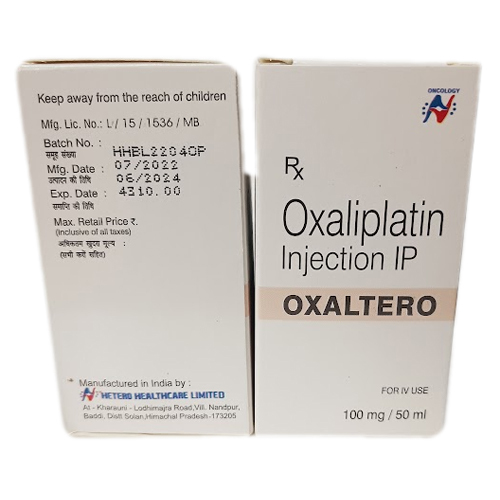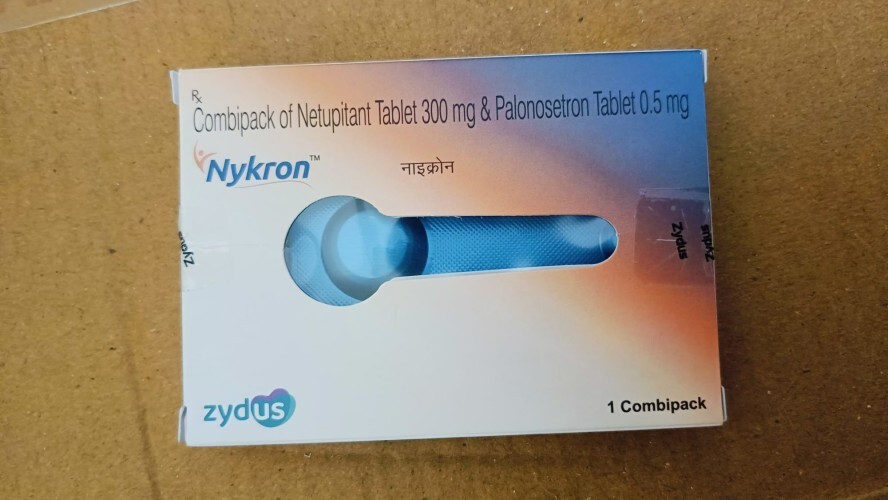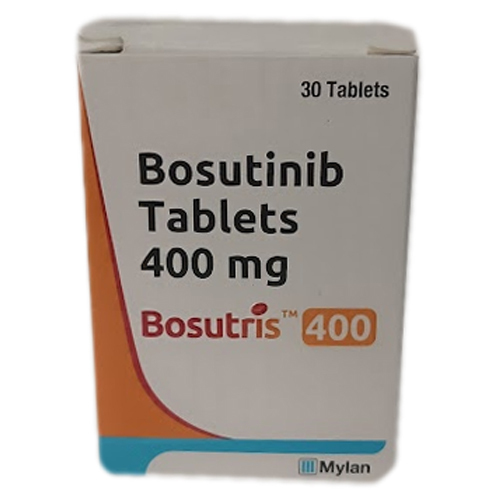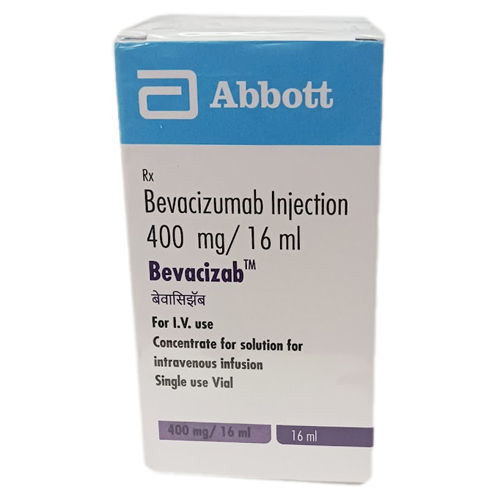Oxaliplatin Injection IP
Product Details:
- Drug Type Injection
- Physical Form Liquid
- Dosage 100 mg
- Dosage Guidelines As per physician
- Storage Instructions Keep dry & cool place
- Click to View more
Oxaliplatin Injection IP Price And Quantity
- 1200 INR/Vial
- 10 Vial
Oxaliplatin Injection IP Product Specifications
- Liquid
- 100 mg
- As per physician
- Keep dry & cool place
- Injection
Oxaliplatin Injection IP Trade Information
- 1000 Vial Per Week
- 4 Days
- Asia Australia Central America North America South America Eastern Europe Western Europe Middle East Africa
- All India South India Central India West India North India East India Gujarat Karnataka Kerala Lakshadweep Mizoram Meghalaya Manipur Andhra Pradesh Bihar Chandigarh Daman and Diu Goa Jharkhand Odisha Punjab Assam Delhi Dadra and Nagar Haveli Andaman and Nicobar Islands Arunachal Pradesh Chhattisgarh Haryana Himachal Pradesh Jammu and Kashmir Madhya Pradesh Maharashtra Nagaland Rajasthan Sikkim Tamil Nadu Telangana Tripura Pondicherry Uttar Pradesh Uttarakhand West Bengal
Product Description
Oxaliplatin is a chemotherapy medication used in the treatment of various types of cancer, including colorectal cancer. It is a platinum-based chemotherapy drug. Here are some key points about Oxaliplatin:
1. Indication Oxaliplatin is used to treat advanced colorectal cancer (cancer of the colon or rectum) that has spread to other parts of the body, as well as certain other types of cancer, such as gastric cancer.
2. Mechanism of Action Oxaliplatin works by interfering with the DNA inside cancer cells, thereby preventing the cells from dividing and multiplying. This helps to slow down or stop the growth of cancer cells.
3. Dosage Oxaliplatin is typically administered as an intravenous infusion (injection into a vein). The dosage and frequency of administration may vary depending on factors such as the type and stage of cancer, overall health, and individual patient factors. The strength of the injection typically varies, but a common strength is 100 mg.
4. Side Effects Common side effects of Oxaliplatin may include nausea, vomiting, diarrhea, fatigue, decreased blood cell counts (anemia, neutropenia, thrombocytopenia), nerve damage (peripheral neuropathy), and allergic reactions. Patients may also experience cold sensitivity or muscle pain, particularly in the jaw and throat.
5. Monitoring Patients receiving Oxaliplatin therapy should be closely monitored by a healthcare professional for any signs of side effects or complications. Blood tests may be conducted regularly to monitor blood cell counts and kidney function.
6. Precautions Oxaliplatin should be used with caution in patients with kidney problems, nerve damage, or hearing loss. It is not recommended for use in patients with severe bone marrow suppression or low platelet counts.
7. Contraindications Oxaliplatin is contraindicated in patients with severe allergies to platinum-based chemotherapy drugs or any of the components of Oxaliplatin. It should not be used in pregnant women or nursing mothers.
Oxaliplatin is an important chemotherapy drug used in the treatment of colorectal cancer and other types of cancer. Its use should be guided by a healthcare professional experienced in the management of cancer. As with any chemotherapy medication, it's important to discuss the potential benefits and risks of Oxaliplatin with a healthcare provider before starting treatment.

Price:
- 50
- 100
- 200
- 250
- 500
- 1000+







 Contact Us
Contact Us
